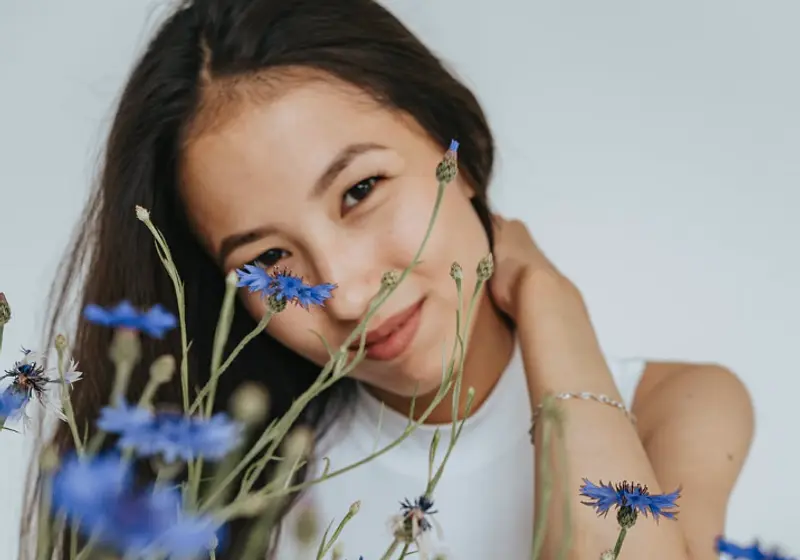As a little girl, I was always eager to grow into the woman that has become the “epitome” of the female [censored]. We all know who she is: relatively tall, thin, tan, big boobs, big butt, small waist, hairless body. Her nails are long and sharp, her hair looks like she’s been living in a spa for the last three years.
These days, she is the “ideal” woman. We see her scrolling through Facebook, on screens and posters advertising throughout the city, and even in movies and art.
Of course, over time I realized how impossible it really was to become her. At seven, I was diagnosed with precocious puberty, which essentially meant that everything came earlier, but also stopped earlier; by twelve, I had already reached my full height of 158 centimeters (five foot one and three quarters) and my full cup size of 32AA.
My confidence plunged to the depths of the sea. I would find random things about myself to criticize for absolutely no reason: my hair was too frizzy, my skin was too pale, my nose was too bumpy. I worried that my teeth would get crooked, but then I would worry about wearing braces.
I worried that my top lip would get dented, because I have the habit of picking on the skin. I even worried about my birthmark, the one on my left leg that looks like a giant almond, and so I would cover it up with my hand so that nobody could see it. I hated my glasses, my stomach that seemed dreadfully unproportionate to my tiny boobs, my cheeky cheeks.
School didn’t help. Even my most intimate friends would point out the little things that were “wrong” with me, and I, being the dramatic person that I am, would only add them to my list of flaws and forget to consider that there was actually nothing the matter with my body. The meanest, most disliked person in school could laugh at me for wearing make-up to cover up a pimple, and my head would dive into a whirlpool of torment.
I called myself a feminist. I was not not a feminist — as a girl writing about femininity, defending equal rights, and trying my best to call attention to the indispensable role of women in society, it seemed I was doing everything right. But one thing was missing, and it was probably the most important part of it all: I didn’t love my body, unconditionally.
I pretended that body image didn’t matter to me, that it shouldn’t matter to anybody, that all women’s bodies are beautiful. And yet, mine wasn’t enough.
One day, I was talking to my best friend A. in the bathroom between classes. She was examining herself before the mirror. A. is long and thin, and she has the hair of a lion.
She was complaining about her “flat” body, and of course, I was telling her that she was being ridiculous. But then I realized, how could I tell my best friend that she was being ridiculous when I was constantly doing the same thing to myself? Isn’t that hypocritical?
A confident person would have probably told me to find a way to say to myself the same thing I say to my friends. That sounds so easy, doesn’t it? Well, any woman can tell you that it’s a b-jillion times easier said than done.
If you’re anything like me, you probably find it immensely frustrating when a confident person tells you, a non-confident person, to feel more confident. It sounds like they’re asking you to grow flowers without water, to make the sun shine in the night. How do you make something from nothing?
For years, I struggled with this issue. Feeling confident was so out of reach sometimes that I would just stand back and watch as it drifted away with the clouds, to a far away place. It was simple to say to my friends that they looked beautiful, but so hard to tell myself the exact same words.
According to my thorough research of seventeen years of life and experience, I know that I’m not the only person that deals with this. Most women have been there.
Most women have been in a situation where they pretend they don’t care, but they’re really plotting their every move in their head, just to make sure that you don’t catch a glimpse of the “bad side” of their face (whatever that means), or their “elephant” ears that hide beneath layers of carefully placed hair. Most women have felt disappointed with something about themselves and have had to conceal it just so that nobody finds out how much they really care, just so that it looks like they’re confident when they’re really not.
And it’s all right to want to look different sometimes, to want to gain weight or lose weight, to want to replace glasses with contacts, to want to cut your hair or treat your acne. Feeling attractive is so important to building confidence, and sometimes some extra beauty care is needed. What isn’t all right is when you shred yourself to a mere piece of your body and let that conduct you, just because the model on the poster you saw on the street has it differently.
So, how do you feel more confident when you just don’t? Well, it definitely won’t happen overnight. Building confidence is like building a pyramid four thousand years ago.
And of course, no pyramid is the same. However, there are some fundamentals that everybody needs to build a base.
To begin, it’s important to recognize why you really feel insecure. Is it actually because your butt is too flat, or is it because the woman’s on Instagram isn’t? Do you really care whether your hips are wide or thin, or do you care because someone told you that you look bad in those blue jeans?
How important is it for your eyelashes to be long or short, for your fingers to be stubby or thin? Would it have bothered you if you thought society didn’t care?
Second, remember that it doesn’t matter as much as you think. You are the protagonist (and antagonist) of your life, and so of course, any element that seems “out of place” will stand out to you; but most people probably don’t care as much as you would expect. And yes, some people do care and do criticize what isn’t according to the “ideal” woman. If you know anybody like that, shave them from your life like you would shave a potato, or a carrot.
Also, — find what makes those “flawed” elements yours, and then embrace them. I’m working hard on this one, and have yet to reach a point of utter embracement. Still, I try not to victimize myself because, in the world of confidence, that is the equivalent of diving head-first into a volcano.
So, when my head goes off on these defeatist rants, I try to remember that my mother gifted me every element of my body, that she made them specifically for me, and that I need to thank her by valuing each piece. Offending myself is offending my family, my roots, my essence.
So: My hair isn’t frizzy, it’s alive like a jungle. My teeth don’t need to be straight to be beautiful. My boobs aren’t too tiny, they’re just tiny, they’re customized.
My nose isn’t bumpy, it is mountainous and wise. My legs aren’t short, they’re just legs, which I used to walk around and swim, and fly sometimes. My skin isn’t pale, it’s porcelain. My almond birthmark isn’t embarrassing, it’s the stain of my youth, the component of me that will always remain unchanged.
What about you? What makes you beautiful?












